This edition of “Preston’s Questions” features one of my favorite people. Heck, all of our epic guests dial into something of great value to our VoiceOver Community. However, when it comes to being a Zen dynamo of VO fortitude and forward momentum, Joan Baker exists in rarified air. Along with her life partner in crime, and SOVAS co-founder, Rudy Gaskins, Joan is part of an ecosystem of professionals that help to maintain and raise the bar of professional VoiceOver. From the early years, to her dancing, singing and voicing her way to success, let’s check in with Joan and explore her dynamic trajectory.
- MP: Thanks for sitting down and chatting for a bit, Joan! Let’s kick things off with something easy. Take us on a “day in the life of Joan”. From the moment your feet hit the ground in the morning, ‘till the time you head to bed, what are the bullet points of a successful day in your life. (**By the way, I expect you to enter this interview the same way you did at That’s Voiceover in L.A. a few months back…I want an extended dance number which features an explosion of epic moves, set under a spotlight and features the musical backdrop of a driving beat, then you roll right into this interview like it’s another day at the office.)
JB: Well, needless to say, my daily routine has been reshaped by having to manage the challenges our global community is facing as a result of the Coronavirus pandemic. That said, I start my morning with spiritual and physical sustenance. After invoking the spiritual realm and making myself present to mindfulness, I have 32 ounces of raw celery juice, followed 20 minutes later by a 20-ounce “heavy metal detox smoothie. Google “ Heavy metal smoothie,” if you’re not familiar with it. You’ll definitely find it interesting. From there, I have a 20 minute bus commute from Weehawken, New Jersey to the epicenter of New York City, where we maintain the SOVAS offices in Manhattan’s theater District. Our offices, by the way, are located in the historic Ed Sullivan Theater Building, so there’s always a sense of excitement, history, celebrity and creativity. Stephen Colbert does his nightly show there, so that adds to the liveliness. I’m mostly focused on SOVAS business, but my day also consist day to day auditioning, working with buyers on VO projects and providing private voiceover coaching, which I love.. I’ve been coaching since 1993, when a New York top acting school I was studying at learned of my work as a voice actor and invited me to teach at the school. I fell in love with it, and started learning teaching techniques from teachers in various fields. It’s one thing to share your experience and put students through exercises. A lot of thoughtful professionals can do that. It’s another thing to actually learn the craft of teaching, which is separate and apart from the subject being taught. - MP: Let’s go “origin story”…how did you go from “little Joan” to the VO dynamo that you are today?
JB: The “little Joan” era was a time of considerable conflict and turmoil, but also a time of discovering and following my dreams. I’m a child of an interracial couple during the 60s, living in an all-white community. That statement alone conjures volatility. My father was white and my mother was black. It was a time of great racial, social and political strife, not to mention a level of prejudice that inflicted emotional and psychological scars to rival those seen by veterans of war, accept for veterans of color, who got the double whammy. So, as a child, in the absence of and detailed explanation from my parents as to why the world was as hateful towards me as it was, I was completely on my own to negotiate this unfathomable negativity on a daily basis. Many of my teachers were racists, some of my “friends” and their parents were racists, and I was always framed as an outsider. When people view you as mixed, there’s a whole other level of racism that stems from the fact that you symbolize what racists fear most – the creation of a brown society and the extinction of the white race. Fear of extinction is the basis of racism. I also had a very difficult relationship with my mother, but that’s a story for another time. Fortunately, our relationship changed in very positive ways, once I reached adulthood. Both those realities, racism and mother-daughter conflict, are a big, big part of what I had to overcome to claim my place in the world. Having dreams and goals is what saved me. For whatever reason, my dream of being in show business was a raging motivation for me. I was blind to any other option. I wanted to be a famous dancer, movie star, and humanitarian. That was my childhood vision board.It’s nice to be seen as a dynamo, so thanks for that. Getting to where I am today is based as much on what I wanted to happen as it is on how I adjusted to actualities along the way. I did not become the vision I imagined as a child, but the essence of that dream most definitely came through. I enjoy being a relevant contributor to the world of voice acting, and I am thrilled by the humanitarian focus that my work with SOVAS brings to all I do. My everyday life is in the trenches. People say to me that my efforts, mine and my husband Rudy’s, have fundamentally changed the world of voice acting. To the extent that that may be true, it’s because we’re in the trenches, working like our livelihood depends on it. Actually our livelihood does depend on it, but here’s the thing: I love to connecting with people. Who I am today is a work in progress. I’m endlessly addressing my being through spiritual work, therapy, and connecting with people who focus on self-improvement. - MP: You have bounced between a number of roles and gigs around VO…from talent, to author, to entrepreneur and more. Is there one thing that lights your fire more than any other? Why is that?
JB: I wouldn’t say I’ve “bounced between roles.” “Bouncing” suggests something random and accidental. Ultimately, my dream was to be a light shining everywhere, bringing joy, love and good will to all people. That’s what excites me, and everything I do still comes from that place. Whether things worked out exactly as I dreamed, I always had a choice as to how I wanted to proceed at every crossroad. Taking on more than one role at a time; acting, voice acting, serving on nonprofit committees, teaching, founding a nonprofit; it’s all just a matter of diversifying and innovating as you manage actualities as they present themselves. So, what lights my fire is still the essence of my childhood dream. I love being a part of the entertainment industry, and I love that my work is guided by supporting humanitarian causes. - MP: You have rubbed elbows with the totems and greats in our industry, as well as many who are just starting their journey. So, you’ve seen the trajectory of a number of careers. From what you’ve observed, what is the common thread you’ve seen that stalls careers?
JB: The first thing that comes to mind are the people who have practiced the fundamentals of learning the craft in an relentless, almost maniacal way. They train hard, keep their minds open to learning and transformation, and invite positive people into their journey. They put training, mastery and creativity before money and notoriety. These people are the ones that I call success stories, and they tend to be the ones who express happiness in their work. What stalls progress is multifaceted; Newbies often view becoming a voice actor with a completely unrealistic idea of what it takes. They are met by a flood of teachers offering the promise of quick success. Quick success offers tend to begin with “a gimmick,” and are too often the opening to a funnel of financial investment that leads down a path to nowhere. These same aspiring voice actors, if they stick with it, eventually realize that there is a legitimate path, with legitimate teachers, and are empowered to take their careers into their own hands. From there, it’s a matter of customizing a pathway that suits your talent, aptitude, investment tolerance and lifestyle.
Now, what’s a common thread that the most successful have implemented in their journey? Is it special sauce, innate talent, elbow grease or simply an “it” factor?
There is no single path that covers everyone, as is the case, for example, with becoming a lawyer or doctor or plumber. With voice acting, you have to dig in before you can uncover the unique talents you have, and how they will serve you in terms of becoming gainfully employed. Anyone who knows SOVAS, knows that we pride ourselves on the pursuit of excellence at all levels of the craft, and that gainful employment is an essential goal. Successful people, with great coaching and training, go on to crystalize their expertise, produce the necessary marketing tools, and develop a measurable marketing plan with clearly defined milestones. Successful voice actors put their plans into action and continually make adjustments as the plan delivers or fails to deliver against the goals. That said, there is the phenomenon called the “it” factor. As is the case with actors, singers, and musicians, some artist just have that special something that the masses are drawn to. This happens with voice talent, as well. However, the “it” factor comes with a host of intangibles that can’t be taught or guaranteed in any way. It happens when it happens and that’s great. However, and this is a critical point, don’t judge yourself against whether you have the “it” factor. Like anything else, even those with the “it” factor must align with the right opportunity and preparation, at the right time. You could have the ”it” factor and never get the chance to discover it. - MP: Take us to the genesis of SOVAS. What was that spark…that idea that set things into motion? How did you pull it all together and turn it into what it is today?
JB: The spark was a desire to honor my father, who had recently died from complications of Alzheimer’s disease. I wanted to do something that would honor his memory and support finding a cure for the disease. I had already been journaling about my experience, and the logical next move was to write a book. But the book had to go beyond my personal journey. It had to be bigger than my story. My way of creating this was to turn to my voice acting community, the people whose very livelihoods depended on their voices, to contribute their personal journeys on behalf of people who had lost their voices to Alzheimer’s Disease. The result was authoring “Secrets of Voice-over Success: Top Voiceover Artists Reveal How They Did It”. This was the first VO book that brought together a variety of points of view by different voice actors. The book itself was like a print version of what would later evolve into a voiceover conference. More importantly, one hundred percent of the book’s royalties were, and continue to be, donated to the Alzheimer’s Association. I, and various contributors to the book (21 in total) would conduct book signings. The book signings were so well attended that we found it necessary to rent hotel space to accommodate the attendees. We started doing these events around the country and it eventually become the full-on conference called That’s Voiceover!™ Career Expo. A few years later it expanded to include the Voice Arts® Awards. The Society of Voice Arts and Sciences (SOVAS) was a way to bring our mission and purpose into a single focus. Further, going nonprofit allowed us to create a framework for the underlying humanitarian focus that gave birth to it all. - MP: With Rudy Gaskins as your partner in crime, do you find it a challenging balance to head home at the end of the day with your co-worker? Have you stuck that balance of “turning off” the world of voiceover, or do y’all both enjoy talk of “VO” when you’re off the clock?
JB: We are rarely off the clock, if ever, and I say that with joy and appreciation for what we set out to do together. Our relationship has never been traditional. We always wanted to do something bigger than ourselves, which has required taking lots of risks, not all of which ended well. Our relationship has been like taking on the challenge of climbing Mt. Everest. It’s a huge thing to accomplish and all the more rewarding to take it on with the love of your life by your side. The thing about two people climbing a mountain is that you depend entirely on each other, not just to get to the top, but for your very lives. You learn that your task to achieve a successful ascent is far bigger than the trivial conflicts that couples generally deal with, and which sometimes blow up into irreconcilable differences. When you’re high up on the side of a mountain, irreconcilable differences can mean falling to your death. So, our differences and squabbles quickly come back to the larger goal of making it to the summit. In our case, the ascent is a lifetime climb that I wouldn’t give up for anything in the world. - MP: We talked about your various gigs and endeavors as a VO goddess (I had to say it at least once). 😉
JB: I’ll never lay claim to that title, but I’m fine with you saying it as many times and as often as you want! I’ve worked in most of the major voiceover genres: commercial, promo, movie trailer, audiobooks, corporate narration, animation and video gaming. Working in multiple genres comes with the territory, especially over a long career. But commercial and promo is where I have had the most success! One to three genres marks the success of most voiceover careers. I have also done on-camera acting for TV and film projects, regional theater, and red carpet hosting. I love, love, love all of it, but there are two voiceover jobs that really warmed my heart and left me with a feeling of absolute completion. One was an incredible 6-spot commercial campaign announcing the creation and purpose of the Muhammad Ali Center. Not only did this campaign premier during the Olympic Games, but it exist now in the permanent archive of the Muhammad Ali Center and Museum. Being connected this way with such a positive global figure, who was also one of my personal heroes, is hard to beat. Another project is right there at the photo finish: I was fortunate enough to narrate a documentary on the creation of the William Jefferson Clinton Library and Museum. My heart nearly pounded it’s way out of my chest when I first heard my voice dovetailing with some of President Clinton’s most inspired quotes and, once again, the documentary is part of the museum’s permanent collection.
Do you think there is Zen in expanding your pursuits and entrepreneurial goals beyond just being in front of the mic, or do you think that most folks can benefit by just staying focused on being a rockstar VO talent?
I suppose both ways can work, and there’s no reason one can’t choose one, or the best of both. When you say Zen, I think of a relaxed mastery of living life artfully on every level. If I’m going to be known as a “rockstar” I hope it will be because I have succeeded in bringing love, hope and comfort to those around me and those who may be impacted positively by my legacy. Legacy thinking is one of the aims of SOVAS. We want all voice actors to recognize that as masters of using their voices for their livelihoods, they might also see the connection to use their “greater voice” (actions and deeds) to serve the greater good of humanity. This is why SOVAS honors environmental activists, humanitarians, and icons of arts and humanities. This is why we went out of our way to partner with the Muhammad Ali Center and Museum to create and honor in The Champ’s name. - MP: With all of your experience and endeavors, it would be an understatement that you aim to help elevate the craft…and industry. With an eye on craft and an industry, how do you feel about the rising tide of VO training programs, classes, coaches, etc. in the VO ecosystem? What wisdom would you pass along to “little Joan”, if she were trying to crack into the industry and navigate these waters in 2020?
JB: Well, I was 30 when I first looked into voice acting, but I’m sure “little Joan” was still calling the shots. The training ecosystem was simpler in those days. Still, as with any industry, you had good folks making an honest living and crooks looking to take advantage of the unsuspecting. The early years of the voice acting training ecosystem was notorious for the latter, primarily because nothing was known about how to break in, or what kind of training was required, and there was no one regulating or watching. It was a hidden industry. There are still crooks out there, but it’s mostly offset by legitimate teachers and a plethora of online info that allows people to do due diligence on the people they work with. My advice to the “little Joans” of today would: 1) Learn as much as you can from reading voiceover articles on Backstage.com. These articles represent the frequently asked questions that you’ll have to pay for if you just start hiring every coach with a nice web site. Take a few weeks to saturate yourself in this free information to get a general sense of the industry. 2) Review some of the various voiceover Facebook groups. These groups are made up mostly of anyone who wants to join, and are chock full of opinions, good and bad (very bad), on any VO topic that happens to be on someone’s mind. As a newbie, you won’t what to believe, but you will begin to get a sense of the conversation among voice actors (newbies, beginners and pros), looking to connect with other voice actors and share opinions. 3) Know from the outset that you will work with several coaches on your way to success. Therefore, you don’t have to choose a coach as if your life depends on it. Instead, you can relax and bring thoughtful consideration to choosing a coach, panic free. 4) Don’t put the cart before the horse. Get solid VO and traditional acting training under your belt before you start focusing on producing a professional demo reel, marketing etc. 5) Your timeline to become a professional voice actor is unique to you. There are no shortcuts. Go with the flow and put in the work. 6) You will know if you have the right coach because you will consistently experience a sense of learning, growth and being fully challenged with each lesson. Over time, you will sense yourself becoming empowered to shape your own future in voiceover, rather than waiting for approval from your coach. - MP: Our industry has never been static. From performance to the technical, things are always in flux. In your mind, what have been the most transformative changes you’ve seen over the years…and what changes do you see on the horizon?
JB: 1) High quality professional tech has erased the “pro-consumer” category. Anyone can now get professional level recording gear for relatively affordable cost. 2) Working from a home is now the professional norm. Don’t think of your studio as less than a professional studio on the outside. Buyers expect a professional quality and you must insure that that’s what you deliver. 3) On the performance level, more and more highly skilled union pros are teaching. As a result, a level of quality that the unions used to claim, exclusively, is being taught to folks who immediately hit the workplace as nonunion talent. In other words, nonunion talent is now as good as union talent. - MP: If you had a magic wand, and could wave it with the intention of changing one thing about the voiceover industry, what would it be? Oh, and what does your wand look like (something tells me that “style” is part of your magic).
JB: It would be that buyers were gender blind. And, I’m not just talking about hiring female voice actors. I’m also talking about female producers, creative directors, account executives, CEOs, and talent agents.
Oh, and what does your wand look like (something tells me that “style” is part of your magic).
Something sleek with sparkles. - MP: I’ve mentioned “little Joan” a few times. So, let’s talk to her one last time. If you were to speak to “little Joan” and address the doubts, concerns and uncertainties that new talent often encounter, what would you tell her…and all the other “little Joans”?
JB: Okay, where’s your therapist’s couch? Since you’re talking about what appears to be a choice “little Joan” is making to go into voice acting, I’m going make “little Joan” 20 to 30 years old. What I would tell her is this: Get a full, well-rounded education in the arts and humanities. Seek out bona fide educators who live, breathe and eat the art of teaching. Teach yourself to observe life and communication like a scientist. Up your curiosity quotient. Learn from everyone and every situation. Learn all the time, as if it’s a way of breathing. Seek out a mentor who has achieved the kind of dream you envision for yourself. Study how they got there. Map out the steps to your dream, then adjust and refine it to adapt to the many unexpected pitfalls, roadblocks, angels and helpers that come along. Understand that dreams and goals do not show up as straight lines. They show up as crooked paths with dangers, dead ends, and wide rivers to cross. In other words, they come with problems. Embrace the problems as the motivation that will get you where you want to go. Life equals problems. You’re not living life if you’re not solving problems. The bigger the problem, the bigger the life. Ultimately, the more you train, learn and practice the more confident and prepared you will be.
What do you tell “big Joan” (wait, that’s not right…how ‘bout “Sophisticated Joan”?) when those same ideas creep up though the evolution of a career. How do you keep the fire lit and the momentum rolling?
I tell her not to wait for negative thinking to show up. Practice self-love, self-care and spiritual mindfulness so that you have the musculature to handle negativity when it when it rears its ugly head. Positive thinking takes practice. Practice it every chance you get. Don’t do it alone. Find a spiritual guide to whom you can take the worst of the worst and get help managing through.
Bonus Lightning Round!
- Sports fan? Who are you rooting for? Muhammad Ali and his legacy.
- The most epic awesome concert you ever attended? The Jackson Five.
- Was there anyone you’ve worked with (or worked for) that you consider to be a mentor…or a who gave you great advice? My mentor is my husband, Rudy. It wasn’t a saying or quote. It is his example of pursuing excellence and leaving no stone unturned.
- If you weren’t “Joan The VO Goddess”, then what would be your gig? I would be a metaphysical healer for performers.
- What song, movie or performance inspires you and gives you “the feels”? Broadway’s “A Chorus Line.”
- What is your definition of a “perfect” Saturday afternoon? Hanging out at a flea market in search of antique shell boxes.
- Your culinary guilty pleasure? Fried Chicken, but I became a vegan two years ago.
- One talent you would give anything to have? Singing.
- Let’s hop in your DeLorean and go back to when you were sixteen years old. What is the one golden piece of wisdom that you want to share with young Joan? Follow your passion without a moment’s hesitation. That’s why you’re here.
- You’re at your favorite restaurant, and you’re sitting at a table with four chairs. Living or not, who would be your top three dream dinner companions? Josephine Baker, Eva Peron and Jeff Bezos
- Besides being the VO dynamo that you are, what else brings you joy? Dance.

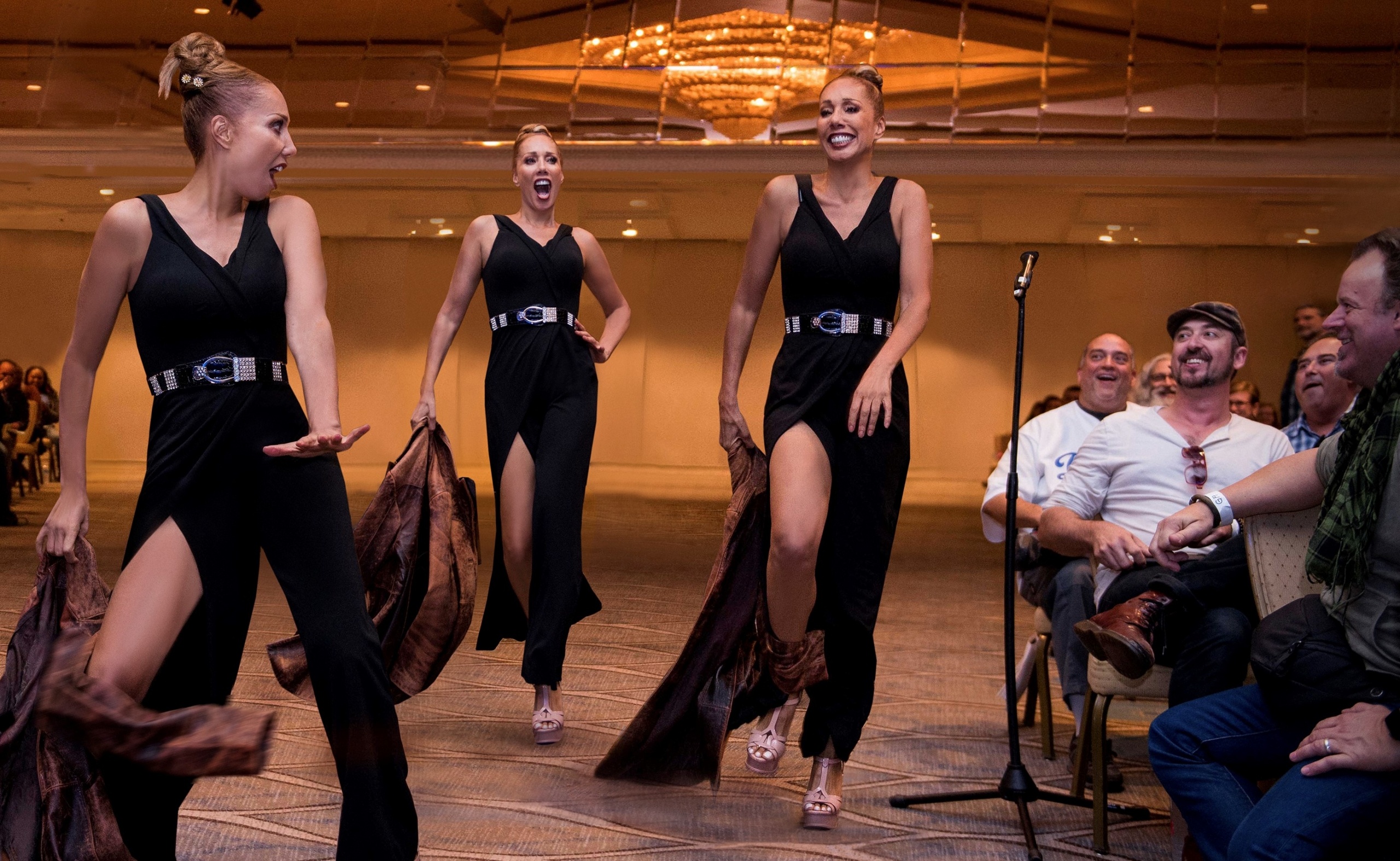
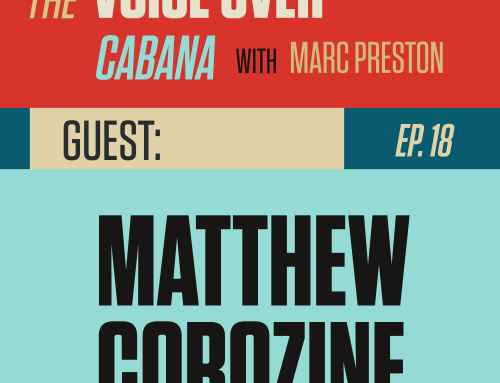
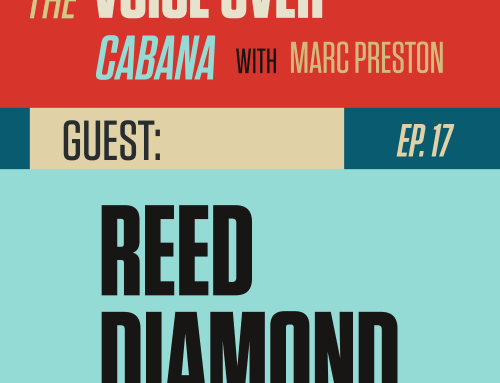
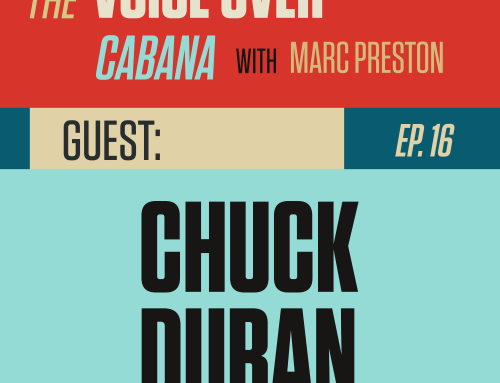

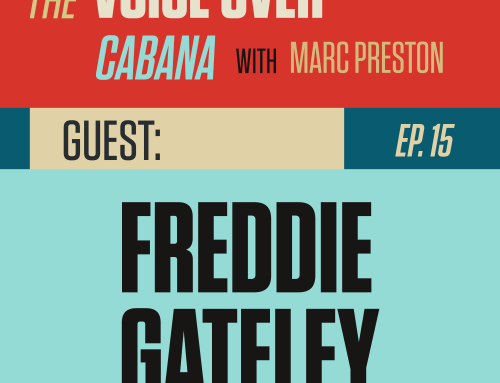
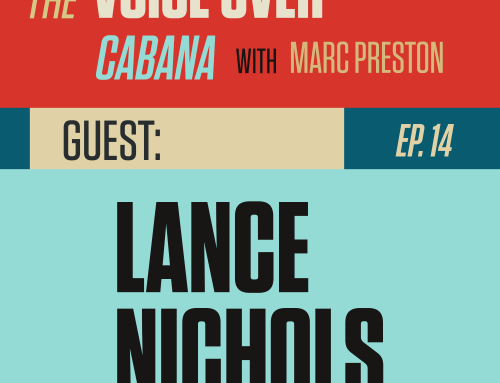
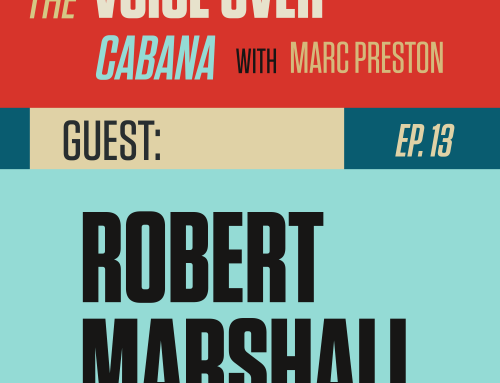
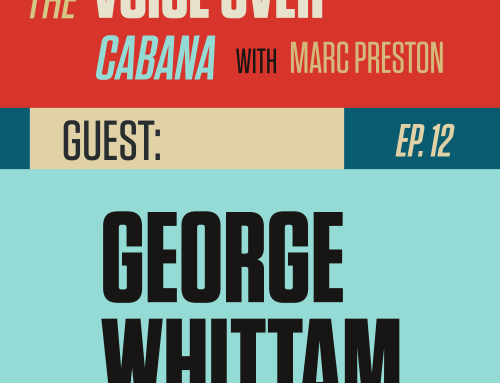
Leave A Comment